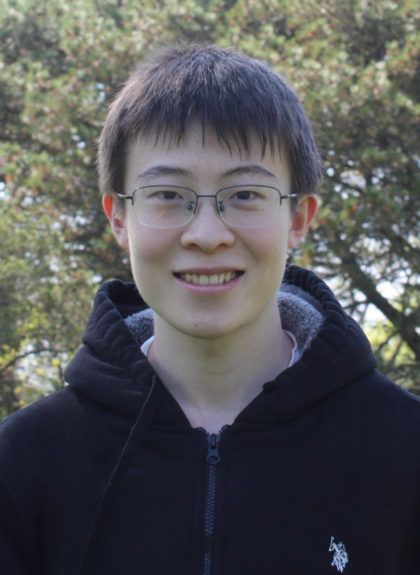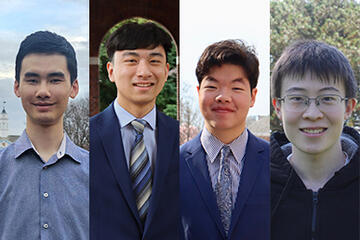Gavin Wang, a rising senior studying physics and mathematics, has been named a 2025 Astronaut Scholar by the Astronaut Scholarship Foundation. This distinction, which was awarded to 74 undergraduates from 51 universities and colleges, recognizes exceptional students pursuing degrees in STEM.

Image caption: Gavin Wang
The Astronaut Scholarship Foundation was founded in 1984 by astronauts Scott Carpenter, Gordon Cooper, John Glenn, Walter Schirra, Alan Shepard, and Deke Slayton. Awardees receive a scholarship of up to $15,000, a paid trip to the Astronaut Scholarship Foundation's Innovators Weekend in August, and the opportunity to network with fellow scholar alumni and the organization's founding astronauts.
Wang, who also won a prestigious Goldwater Scholarship in March, aims to become a leading researcher in the field of exoplanet characterization. Exoplanets are planets outside Earth's solar system that orbit around a star.
"I've been interested in astronomy since a young age, and in high school I was looking for research projects to do," Wang says. "At around the same time, I saw some news articles about recent findings in exoplanets, and I soon started to help discovering new exoplanets as part of an international collaboration [NASA's Transiting Exoplanet Survey Satellite Follow-up Program.]. I did this for about two years, and this was my first exposure to astronomy research: collecting data with telescopes and analyzing and publishing it."
To date, over 5000 exoplanets have been "confirmed." Over a dozen of these discoveries are thanks in part to Wang's contributions, leading to 24 co-authored publications from work he did before college.
The January before his arrival at Hopkins, Wang reached out to Néstor Espinoza at the Space Telescope Science Institute and began analyzing variability in transit depth, the measure used to determine planet radius, for a subset of planets for which transit depth is not a constant. He has shared this work in a first-author publication in The Astronomical Journal (2024) and multiple conference presentations. He also took on a project with Espinoza to develop a better method for reducing the "pink (1/f) noise" in the near-infrared detection data produced by the James Webb Space Telescope. He embarked on a separate line of research with David Sing, Bloomberg Distinguished Professor of Physics, in the spring of his first year to measure the mass of a low-density exoplanet. This work has led to a second first-author manuscript recently submitted to The Astronomical Journal. Wang also secured an internship at Caltech's Exoplanet Technology Lab last summer to study atmospheric layers of a "brown dwarf" (objects that are between planets and stars in their mass).
"I haven't changed fields because I've found my work more and more intriguing," Wang says. "Scientifically, it's also an exciting time to be studying exoplanets, with missions including the James Webb Space Telescope able to precisely characterize exoplanets. It's impressive how much progress has been made since the discovery of the first exoplanet 30 years ago, and I'm eager to see what discoveries we will make in the near future."
To learn more about the Astronaut Scholarship and other available fellowships, visit the National Fellowship Program website.
Posted in Student Life
Tagged physics and astronomy, scholarships








